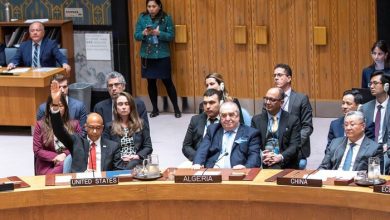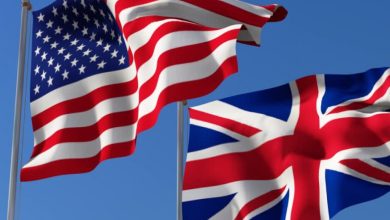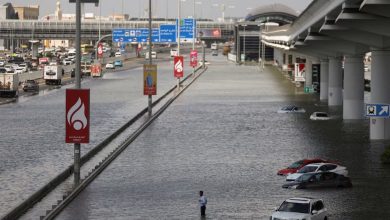SAUDI ARABIA’S COLD WAR WITH IRAN

In a wide-ranging conversation last April with Jeffrey Goldberg, the editor in chief of “The Atlantic” magazine, Saudi Arabia’s crown prince Mohammed bin Salman spoke about some of the challenges facing the kingdom. Much of the conversation was about the “cold war” with Iran.
Goldberg began by asking the crown prince about Islam and the role he thought Islam should play in the world. Islam, the crown prince responded, was a religion of peace. This was the very
meaning of the word “islam”. He said muslims had two responsibilities: The first concerned belief and good works and the second was about teaching others about Islam. For 1,400 years, muslims
had been trying to spread the message of Islam. This was not about conquest. It was about peacefully spreading the message. However, what the crown prince called the “triangle of evil” was
trying to promote the idea that it was the duty of muslims to re-establish a caliphate, to “build an empire by force”. But this was false, he said. Muslims had only been asked to spread the
message of Islam and this mission had already been accomplished. “Today, every human has the right to choose what they believe. In every country, it is possible to buy religious books. The
message has been delivered” he said. Asked about what made up the “triangle of evil” the crown prince said the Middle East was divided into two warring camps. On the one hand, the “triangle of evil,” consisted of Iran, the Muslim Brotherhood, and terrorists. On the other hand, there was an alliance of moderate states that included countries such as Saudi Arabia, Jordan, Egypt, the United Arab Emirates, Bahrain, and Oman. Iran’s supreme leader, Ayatollah Ali Khamenei, he said, made Hitler look good. “Hitler didn’t do what the supreme leader is trying to do” he said. “Hitler tried to conquer Europe. The supreme leader is trying to conquer the world.”The Iranian regime, he said, wanted to spread their extremist Shiite ideology believing that if they spread it,
the “hidden imam” would return to rule the world from Iran. “They’ve said this every day since the Iranian revolution in 1979” he said. “It’s in their law and they’re proving it by their actions”.
The second part of the triangle, he continued, was the Muslim Brotherhood, which was another extremist organization. They wanted to use “democracy” to build “shadow caliphates”Once this
was done, they planned to transform the shadow caliphates into a single empire. The third group were the terrorists. “The leaders of al-Qaeda and Isis were all Muslim Brotherhood” he said “Osama bin Laden, Ayman al-Zawahiri, the leader of Isis. This is very clear.” This triangle of evil, he said, was promoting an idea that muslims had not been asked to promote. It went totally against the principles of the United Nations. Moderate Arab countries were defending the idea that independent nations should focus on their own interests, in building good relations on the foundation of U.N. principles. The triangle of evil didn’t want to do that. Goldberg suggested to the crown prince that after 1979, but before 1979 as well, conservative factions in Saudi Arabia had used oil money to export “wahhabi ideology” an intolerant, extremist version of Islam, very fundamentalist in nature, similar to that of the Muslim Brotherhood. “No one can define Wahhabism. There is no Wahhabism. We don’t believe we have Wahhabism” the crown prince responded. “We believe we have, in Saudi Arabia, sunni and shiite. We believe we have within sunni Islam four schools of thought -Hanbali, Hanafi, Shafi’i, Maliki- and we have the “ulema” or the religious authorities and the board of “fatwas” which issues religious rulings. The crown prince went on to explain that 600 years ago, his family had established a town called Diriyah, which became the economic center of the Arabian peninsula. Most other towns had fought over trade. The crown prince’s family had suggested to other tribes that instead of attacking the trade routes, they could be hired to guard them. In this way, trade flourished. This was the method. Three hundred years later, this was still the method. The idea was always that you needed all the tribal and religious leaders to work with you. One of them was Muhammad ibn abd alWahhab.“When people speak of Wahhabism” he said “ they don’t know exactly what they are talking about. Abd al-Wahhab’s family, the al-Sheikh family, is today very well known, but there are tens of thousands of important
families in Saudi Arabia today. And you will find a shiite in the cabinet; you will find shiites in government; the most important university in Saudi Arabia is headed by a shiite” Pressed by Goldberg on the funding of extremists, the crown prince said that such funding before 1979 had taken place during the period of the cold war when communism was spreading and threatening the United States, Europe and also the Arab world. Egypt had turned at that time into a socialist regime. He said Saudi Arabia had worked with whomever it could to get rid of communism. Among those with whom it had worked was the Muslim Brotherhood, financed by both Saudi Arabia and the United States. “If we went back in time, we would do the same thing.” he said “We would use
these people again. Because we were confronting a bigger danger – getting rid of communism” Then in 1979 came the Iranian revolution and the creation of a regime based on an
ideology of pure evil, a regime not working for the people, but serving an ideology. In the sunni world, extremists were trying to spread the revolution and there was the attack on the grand mosque in Mecca. “We were trying to keep everything tied together, to keep everything from collapsing” the crown prince said. “We faced terrorism in Saudi Arabia and in Egypt. We called for the arrest of Osama bin Laden very early, because he was not in Saudi Arabia. We suffered a lot by fighting terrorism, until 9/11 happened. This is the story.” The crown prince went on to describe
how Saudi Arabia was pushing back against Iran in countries such as Yemen, Iraq, Lebanon and Sudan. “We believe that if we push back, the problems will move back inside Iran.” he said “We don’t know if the regime will collapse or not—it’s not the target, but if it collapses, great, it’s their problem. We have a war scenario in the Middle East right now. This is very dangerous for the world. We cannot take the risk here. We have to take serious painful decisions now to avoid painful decisions later” Asked if Saudi Arabia was only making the situation in Yemen worse though military action,the crown prince noted that Yemen had begun to collapse in 2014, a year before Saudi Arabia intervened. There had been acoup d’état against a legitimate government which alQaeda had used for its own agenda. Saudi Arabia had helped to get rid of extremists in Syria and Iraq who then created a base in Yemen. It would be much harder to get rid of extremists
in Yemen than Iraq or Syria. Saudi Arabia’s aim in Yemen was to help the legitimate government and bring stability to the country






I like the article
Thanks for the excellent manual